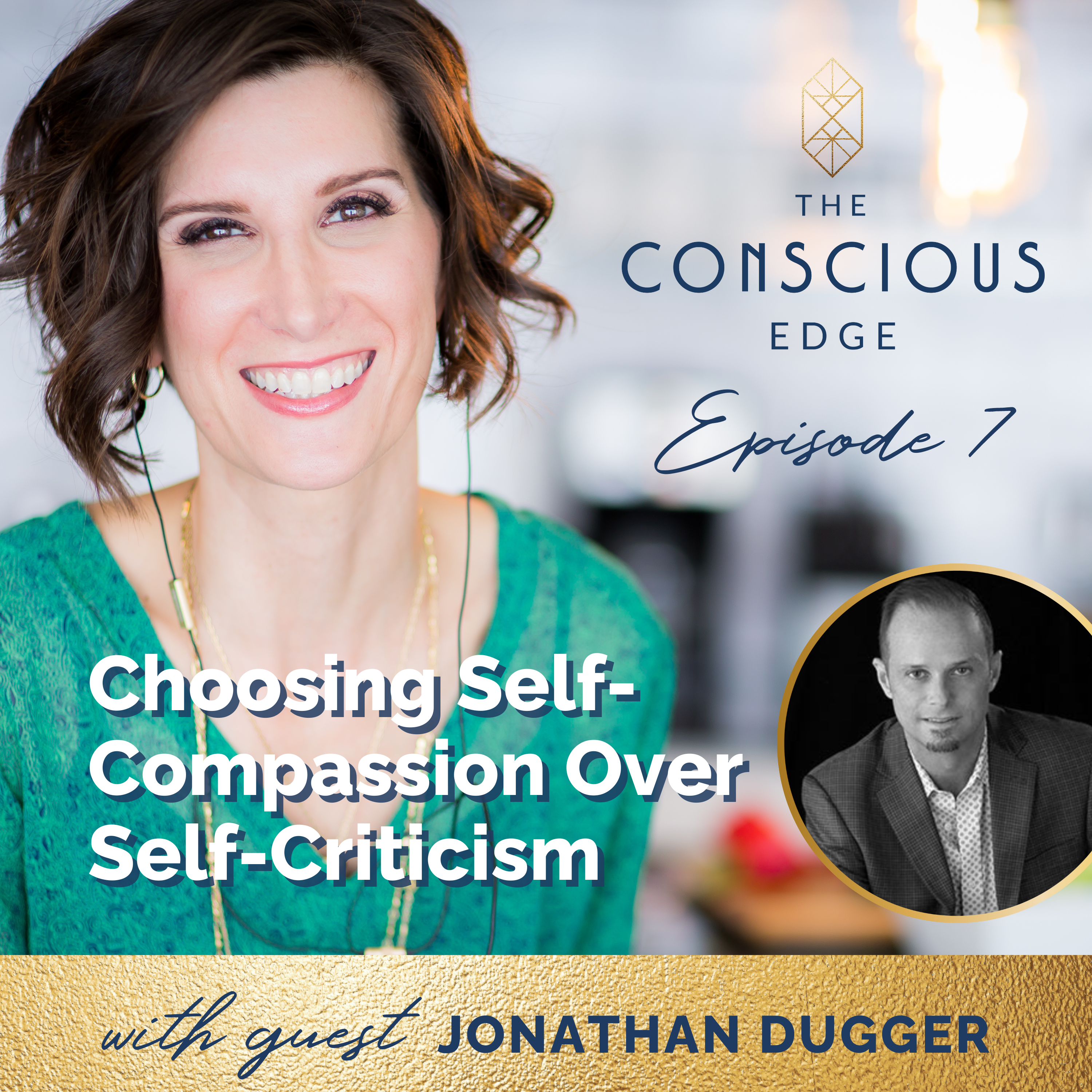Alecia St. Germain here, and welcome to an episode about self-compassion. My friend Jonathan Dugger, wellness advocate and doctor of psychology, is here with me again for another great conversation. The timing couldn’t have been more perfect as we both navigated through the jitters and excitement of our podcast officially launching. It’s a fitting topic because, let’s face it, we all have moments of doubt and self-criticism, especially when stepping into new ventures.
Shifting Perspectives
Jonathan kicked off our conversation by highlighting a significant point: while we’ve all heard about the importance of compassion towards others, we often neglect self-compassion. He shared that recent research has shown how vital self-compassion is for mental and physical health, relationship stability, and even job performance. It’s a game-changer for personal growth.
The Irony of Self-Criticism
One of the most eye-opening moments was when Jonathan mentioned how those who work in fields that require empathy, like healthcare or coaching, are often the hardest on themselves. It’s ironic but true. We extend kindness to others yet struggle to apply the same principles to ourselves. As Jonathan put it, “People that tend to be healers… often we are some of the ones that are the hardest on ourselves.”
The Mindfulness Piece
Mindfulness plays a crucial role in self-compassion. It’s about stepping outside of ourselves and observing our thoughts and feelings without judgment. Jonathan illustrated this beautifully: “When that criticism starts to come in, we step outside and we just hit the pause button in that moment and say, okay, what’s going on?”
Self-Compassion is Not Self-Pity
We also debunked some myths. Self-compassion is not the same as self-pity or self-indulgence. It’s about finding a balanced perspective and dealing with negative emotions constructively. Jonathan shared an anecdote from a lunch and learn session where someone equated self-compassion to having a pity party. He clarified that self-compassion involves an awareness of our shared human experience and is about responsible self-reflection.
Real-Life Application
I shared a personal story where I missed posting a coaching call recording. Initially, I felt terrible, but instead of making excuses, I owned up to my mistake and planned to correct it. This approach not only alleviated my discomfort but also allowed me to maintain my integrity and relationship with my clients. As Jonathan said, “Understanding context is really important. It’s about asking what can I do differently, or why did this happen? That’s not making an excuse, it’s looking for context on the way to understanding.”
Practice Self-Compassion
Our conversation could have continued for hours, but it’s clear that self-compassion is not just a feel-good concept—it’s a necessary practice for true growth and fulfillment. Remember, the next time you catch yourself in a loop of self-criticism, take a step back, breathe, and approach yourself with the same kindness you’d offer a friend.
Thank you for joining us today. Let’s continue to grow together by embracing self-compassion and fostering a more supportive inner dialogue. Until next time, be gentle with yourself and others.
Sending you love and be well!
Connect with Us:
- If you have ideas for topics you’d like us to cover, please email them to hello@consciousedge.com.
- Learn more about The Exponential Entrepreneur
- Follow Alecia on Instagram for Bits of Joyful Inspiration
- Connect with Alecia on LinkedIn
- Connect with Jonathan on LinkedIn
- Check out Jonathan Wellness Advocacy
- Disclaimer

